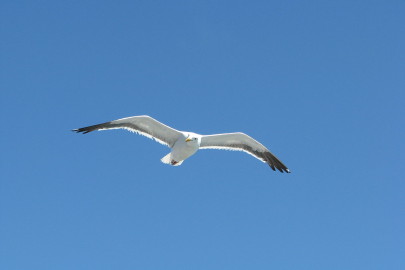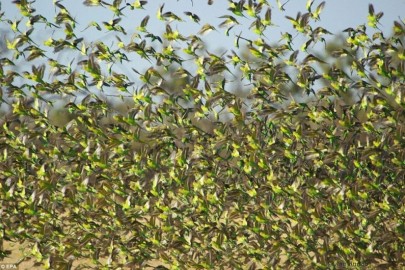Do you hear the Spring sound of mowers humming? Stephen considers the poetic qualities of grass…
I am easy to please. All seems right with the world when, on a sunny spring day, I can hear the hum of lawnmowers from various points in the distance, and the scent of freshly-cut grass arrives on a soft breeze. Who says that there is no such thing as Paradise on Earth?
Here is John Ruskin (in one of those extravagant, wide-ranging apostrophes of his that make reading his books such a delight):
The Greek, we have seen, delighted in the grass for its usefulness; the medieval, as also we moderns, for its colour and beauty. But both dwell on it as the first element of the lovely landscape; we saw its use in Homer, we see also that Dante thinks the righteous spirits of the heathen enough comforted in Hades by having even the image of green grass put beneath their feet; the happy resting-place in Purgatory has no other delight than its grass and flowers; and, finally, in the terrestrial paradise, the feet of Matilda pause where the Lethe stream first bends the blades of grass.
Consider a little what a depth there is in this great instinct of the human race. Gather a single blade of grass, and examine for a minute, quietly, its narrow sword-shaped strip of fluted green. Nothing, as it seems there, of notable goodness or beauty. A very little strength, and a very little tallness, and a few delicate long lines meeting in a point, — not a perfect point either, but blunt and unfinished, by no means a creditable or apparently much cared-for example of Nature’s workmanship; made, as it seems, only to be trodden on to-day, and to-morrow to be cast into the oven; and a little pale and hollow stalk, feeble and flaccid, leading down to the dull brown fibres of roots. And yet, think of it well, and judge whether of all the gorgeous flowers that beam in summer air, and of all strong and goodly trees, pleasant to the eyes or good for food, — stately palm and pine, strong ash and oak, scented citron, burdened vine, — there be any by man so deeply loved, by God so highly graced, as that narrow point of feeble green.
John Ruskin, Modern Painters, Volume III (1856), Part IV, Chapter XIV, Section 51 (italics in original).
Wordsworth considers the subject in the following untitled poem.
This Lawn, a carpet all alive
With shadows flung from leaves — to strive
In dance, amid a press
Of sunshine, an apt emblem yields
Of Worldlings revelling in the fields
Of strenuous idleness;Less quick the stir when tide and breeze
Encounter, and to narrow seas
Forbid a moment’s rest;
The medley less when boreal Lights
Glance to and fro, like aery Sprites
To feats of arms addrest!Yet, spite of all this eager strife,
This ceaseless play, the genuine life
That serves the stedfast hours,
Is in the grass beneath, that grows
Unheeded, and the mute repose
Of sweetly-breathing flowers.William Wordsworth, Yarrow Revisited, and Other Poems (1835).
Wordsworth’s poem fits well with some further remarks by Ruskin:
Observe, the peculiar characters of the grass, which adapt it especially for the service of man, are its apparent humility, and cheerfulness. Its humility, in that it seems created only for lowest service, — appointed to be trodden on, and fed upon. Its cheerfulness, in that it seems to exult under all kinds of violence and suffering. You roll it, and it is stronger the next day; you mow it, and it multiplies its shoots, as if it were grateful; you tread upon it, and it only sends up richer perfume. Spring comes, and it rejoices with all the earth, — glowing with variegated flame of flowers, — waving in soft depth of fruitful strength. Winter comes, and though it will not mock its fellow plants by growing then, it will not pine and mourn, and turn colourless and leafless as they. It is always green; and is only the brighter and gayer for the hoar-frost.
John Ruskin, Modern Painters, Volume III, Part IV, Chapter XIV, Section 52 (italics in original).
A side-note: given Ruskin’s invention of the term “pathetic fallacy,” it is interesting to find him describing the “humility” and “cheerfulness” of grass.











